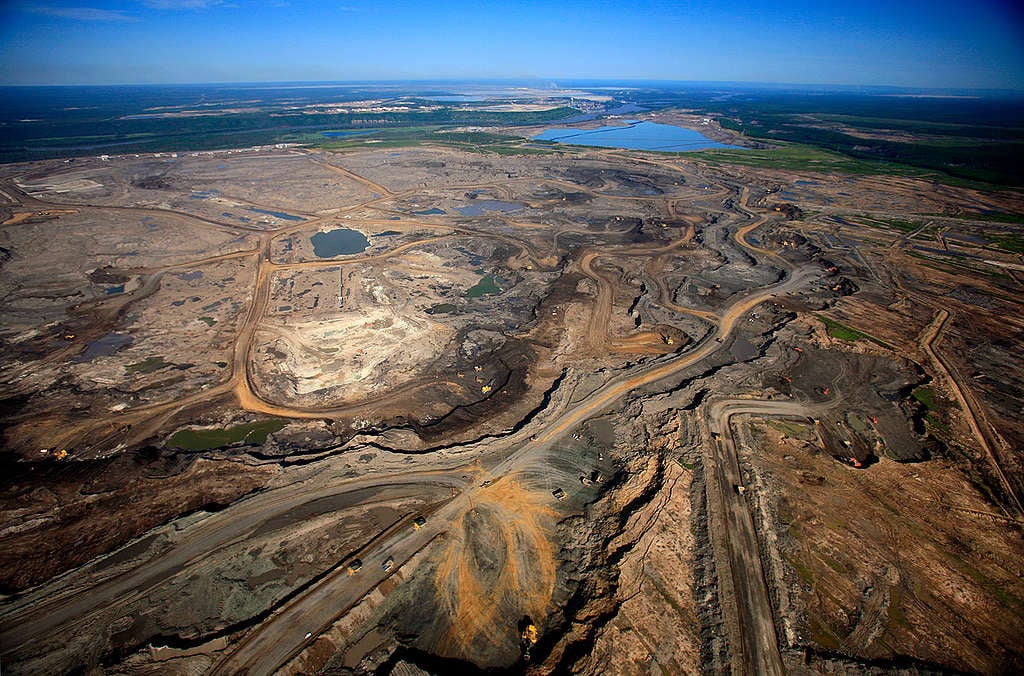Canada’s Trans Mountain Pipeline has delivered 300,000 barrels of crude and refined oil per day from Alberta to British Columbia since 1953. But when its owner, Kinder Morgan, proposed in 2013 to construct a second pipeline to run alongside the original one to deliver an additional 600,000 barrels per day, controversy arose. First Nations groups, environmentalists, and many in British Columbia opposed the expansion project noting the negative impacts on land, wildlife, and greenhouse gas emissions, while Kinder Morgan, Alberta residents, and other proponents argued that Canada needed the energy and the money that would come from selling it abroad.
In a move that shocked people across the globe, Prime Minister Justin Trudeau—a famous champion of climate advocacy—came out in support of the pipeline, just a day after declaring climate change to be a national emergency in Canada. Trudeau’s decision, which drew opposition from the left and the right, highlighted the tension between helping the environment and the economy and ignited debate as to whether, in this instance, both can be improved simultaneously.
As Canada attempts to become a world leader in mitigating climate change, it’s had to contend with the fact that the economy of Alberta, and all of Canada, is largely driven by oil. Alberta’s tar sands hold some of the planet’s largest oil reserves. If Alberta were a country, it would be the fifth-largest oil producer in the world. The Trans Mountain Pipeline Expansion would not only deliver more oil across British Columbia and cheapen energy prices, but it would bring oil to the Pacific Ocean, where it could be sold abroad in China and other Asian markets. Uncertainty around the United States’ need for Canadian oil is growing due to the mix of a burgeoning renewable energy sector, a push toward clean energy in several states, and fossil-fuel-friendly environmental policy from the White House. With less business from its neighbor, new trade partners across the Pacific would ensure Canada’s oil market remains somewhat stable.
However, the Trans Mountain Pipeline Expansion would also have environmental consequences: First Nations groups would lose their land; killer whales, salmon, trout, and other marine life would face a greater threat of oil spills; and increased oil production would increase Canada’s greenhouse gas emissions and exacerbate their carbon footprint. Canada is currently on track to miss its 2030 climate target of reducing emissions to 30% under 2005 levels, and, as National Observer climate reporter and data analyst Barry Saxifrage demonstrates in the chart below, it’s almost entirely due to their reliance on oil and gas. The policies they’ve currently proposed wouldn’t cut it, but if Canada were to enact all of those policies and reduce oil and gas production by 30%, they would meet their target.
Trudeau’s plan: buy the Trans Mountain Pipeline. The federal government of Canada purchased the pipeline from Kinder Morgan for $4.5 billion in 2018 with the plan to operate it themselves until they found outside investors to finance the expansion, which has yet to happen. By buying the pipeline, Trudeau hoped to help the environment by helping the economy. By selling oil abroad and cheapening domestic energy, Canada could raise revenue to protect the environment and fund the transition away from fossil fuels. “We are a government that cares deeply about the environment, and we care just as deeply about the economic success of Canadians,” Trudeau said. “This isn’t an either-or proposition.”
Canada has had previous success taking a two-pronged approach to help the economy and the environment simultaneously. In 2008, British Columbia—at the time led by conservatives—enacted a province-wide carbon tax and shift, where the provincial tax on carbon emissions would gradually increase year by year and the revenue raised would be returned to people and businesses as a rebate on their tax returns. By 2015, The Atlantic reported that “Fossil fuel use in British Columbia has since fallen by 16 percent, as compared to a 3 percent increase in the rest of Canada, and its economy has outperformed the rest of the country.” People could still make their own choices, but the prices now accurately reflected each choice’s environmental cost. And seeing as people were getting more and more money back from the government each year, the economy could grow while the environment improved. In 2018, Trudeau passed the Greenhouse Gas Pollution Pricing Act, which implemented a carbon tax and shift nationwide.
In the case of the Trans Mountain Pipeline Expansion, Trudeau has a more challenging tightrope to walk. Yes, Canada needs money to fund its climate change mitigation, but is increasing oil production the right approach? Is it a quick and easy source of revenue that will propel Canada to faster emissions reductions or will it stick Canada further into its oil reliance?
Comedian Hasan Minhaj asked Trudeau about the Trans Mountain Pipeline on his Netflix series Patriot Act. “I feel like it’s pulling in two different directions. It’s like me saying I’m gonna lose weight by eating more Kit Kats,” Minhaj quipped. “What you’re describing sounds like trying to whiten your teeth by drinking wine at every meal.” Trudeau insisted that was not the case and, in fact, economic growth and environmental protection must go hand in hand. He is absolutely right that legislation can improve the economy and the environment simultaneously. But if he still wants to be lauded as a global superstar in the fight against climate change, he must either convince the world that the Trans Mountain Pipeline Expansion can accomplish both goals or concede that it won’t.
Sources
Austen, I. (2019, June 18). Canada Approves Expansion of Controversial Trans Mountain
Pipeline. Retrieved from https://www.nytimes.com/2019/06/18/world/canada/trudeau-trans-mountain-pipeline.html.
Boothby, L. (2019, January 22). Trans Mountain says significant environmental effects of marine
shipping are justified. Retrieved from https://www.citynews1130.com/2019/01/21/trans-mountain-says-significant-environmental-effects-of-marine-shipping-are-justified/.
Canada to miss 2020 climate target: audit. (2018, March 27). Retrieved from https://phys.org/news/2018-03-canada-climate.html.
Clean Prosperity. (2019, September 11). A carbon tax means the Transmountain pipeline can
go hand-in-hand with strong climate action. Retrieved from https://www.cleanprosperity.ca/2019/06/18/a-carbon-tax-means-the-transmountain-pipeline-can-go-hand-in-hand-with-strong-climate-action/.
Halstead, T. (2015, November 19). What a Conservative Alternative to Obama’s Climate Plan
Looks Like. Retrieved from https://www.theatlantic.com/politics/archive/2015/11/a-conservative-approach-to-addressing-climate-change/415887/.
Netflix. (2019, September 1). The Two Sides of Canada. Patriot Act with Hasan Minhaj.
Planning the Route. (n.d.). Retrieved November 18, 2019, from
https://www.transmountain.com/planning-the-route.
Rauhala, E. (2019, June 19). On Monday, Canada declared a ‘climate emergency.’ On Tuesday,
it approved a pipeline expansion. Retrieved from https://www.washingtonpost.com/world/on-monday-canada-declared-a-climate-emergency-on-tuesday-it-approved-a-pipeline-expansion/2019/06/18/242faca6-9137-11e9-956a-88c291ab5c38_story.html.
Saxifrage, B., & Meyer, C. (2019, February 1). Canada’s climate gap widens yet again.
Retrieved from https://www.nationalobserver.com/2019/01/30/analysis/canadas-climate-gap-widens-yet-again.
Willms, I. (2019, May 3). This is the world’s most destructive oil operation-and it’s growing. Retrieved from https://www.nationalgeographic.com/environment/2019/04/alberta-canadas-tar-sands-is-growing-but-indigenous-people-fight-back/.

